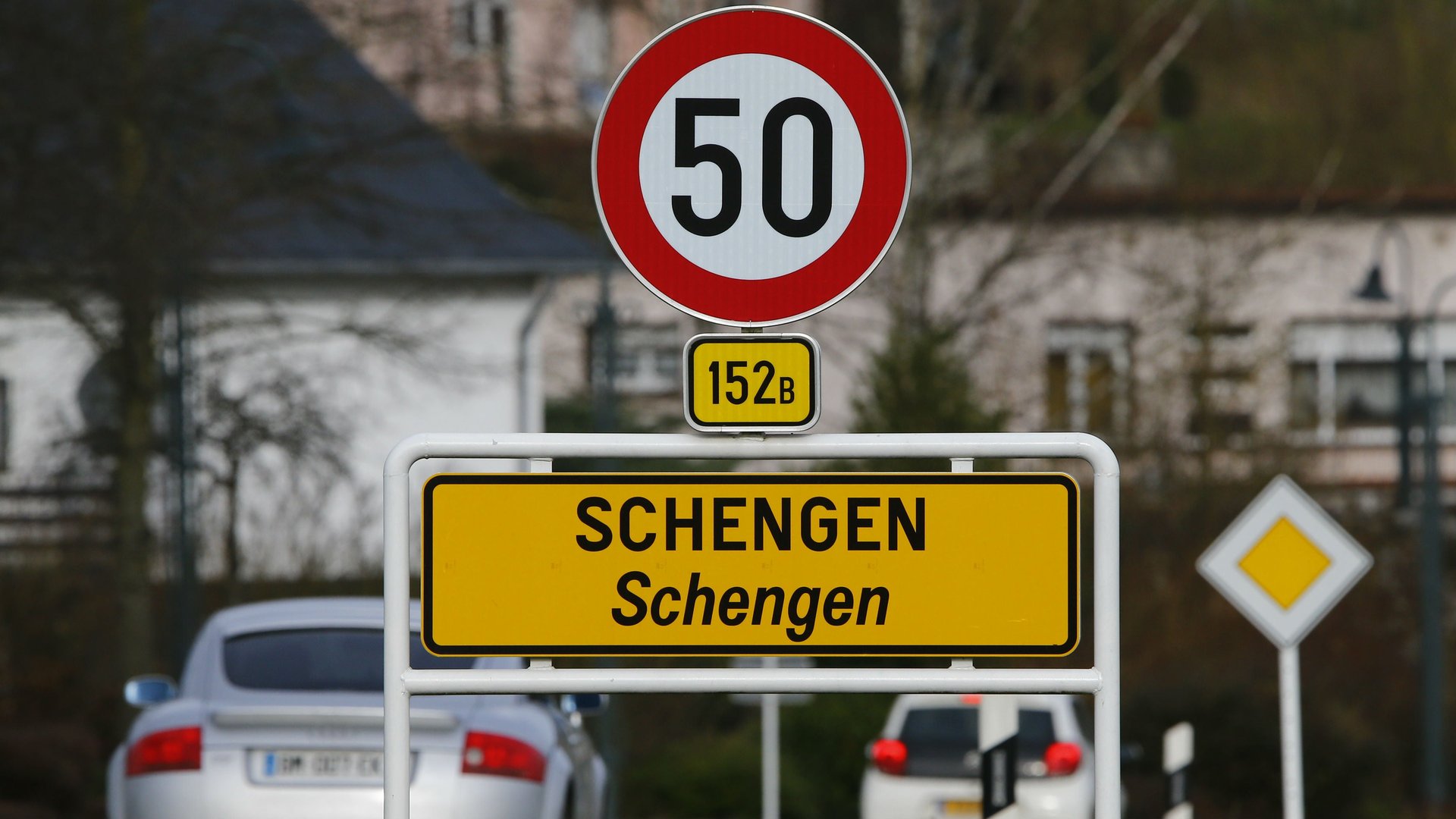Reintroducing border controls within Europe would cost its economy dearly
More than a million people sought asylum in Europe last year, and the influx of refugees from Syria, Iraq, and other war-torn places shows no signs of letting up in 2016.


More than a million people sought asylum in Europe last year, and the influx of refugees from Syria, Iraq, and other war-torn places shows no signs of letting up in 2016.
The strains are evident in countries at the front lines, like Greece and Italy, but also across the European Union, with member states arguing over costs and quotas for redistributing refugees across the bloc. Social unrest and outright violence between locals and new arrivals is also pushing policymakers to rethink their approach.
In some cases, EU officials are questioning the fundamental tenets of the union—namely, passport-free travel within the 26 countries that comprise the so-called Schengen area. Some countries have already imposed temporary border controls on internal crossings along popular migration routes. The European Commission is also considering a two-year suspension of Greece’s membership in the Schengen zone, because it is ”seriously neglecting its obligations” under the treaty.
Beyond the political significance of scrapping the 30-year-old Schengen agreement, abolishing the free movement of people within Europe would carry a steep economic cost, according to a new report by France Stratégie (pdf), a French think tank affiliated to the prime minister’s office.
Border checks don’t just deter migrants—they discourage tourists, cross-border workers, and trade.
Take France. The country stands to lose €10 billion ($11 billion) of its GDP by 2025 if border controls were reintroduced, or around 0.5% of total output. For a country that has consistently struggled to growth by even that small amount, this is significant.
The biggest hit would be to tourism—particularly for tourists who today visit for just a day from neighboring countries—with a drop in revenue of an estimated €500 million per year. Some 350,000 people also work in France but live across its borders; more hassle for these cross-border commuters would subtract another €250 million from potential output. Slower and more costly freight transport would also put a dent in the economy.
Looking across the Schengen area, France Strátegie estimates that bilateral trade flows have been boosted by 10% to 15% thanks to passport-free travel. Reimposing border checks would reduce this trade, and amount to a “shadow tax” of 3% of goods traded between former Schengen countries. Other financial flows and investments would probably also take a hit, although these are harder to model. In total, the think tank says, reimposing internal border controls across the Schengen area would cut the region’s economic output by some €100 billion by 2025, or 0.8% of GDP.